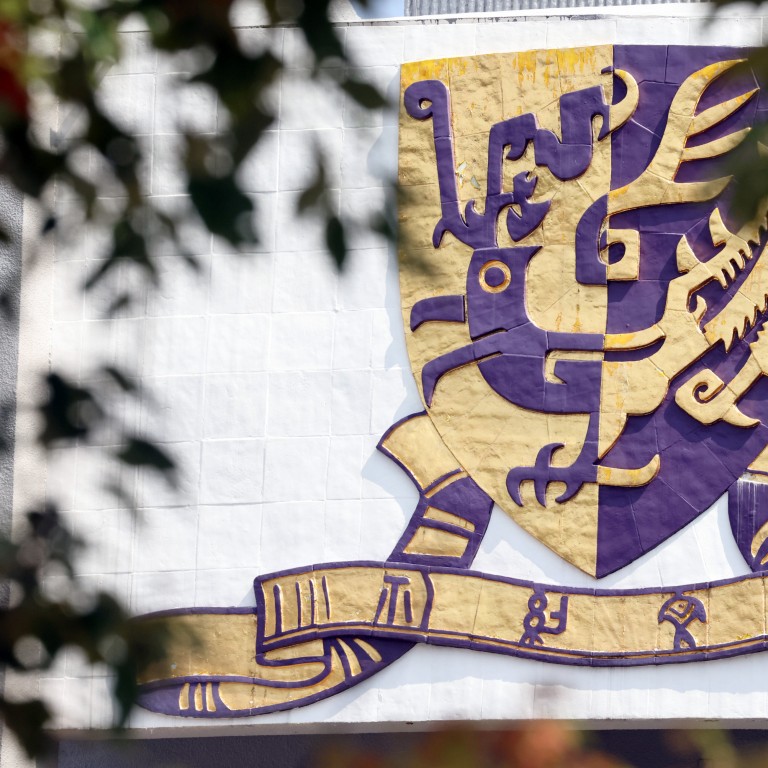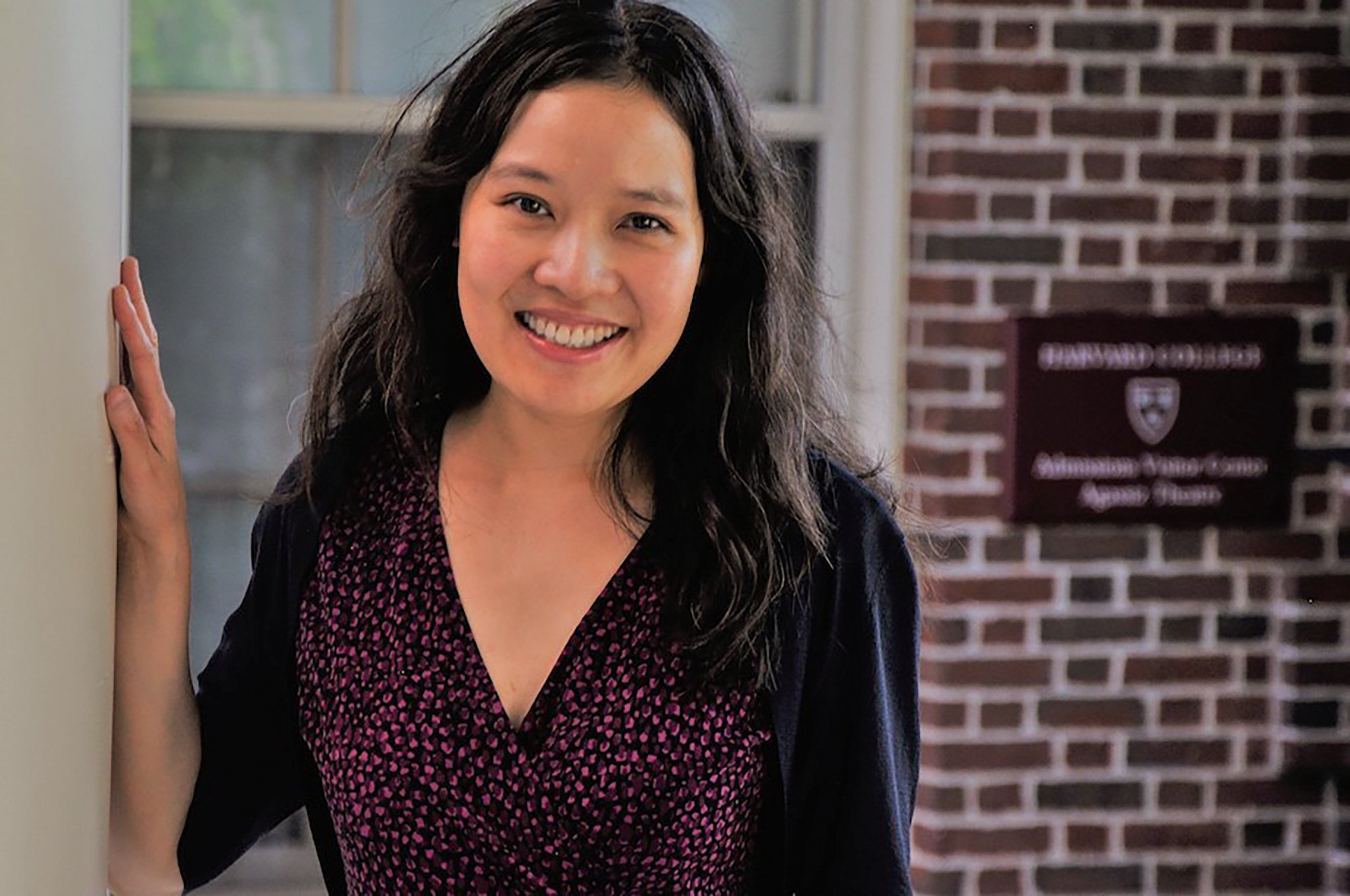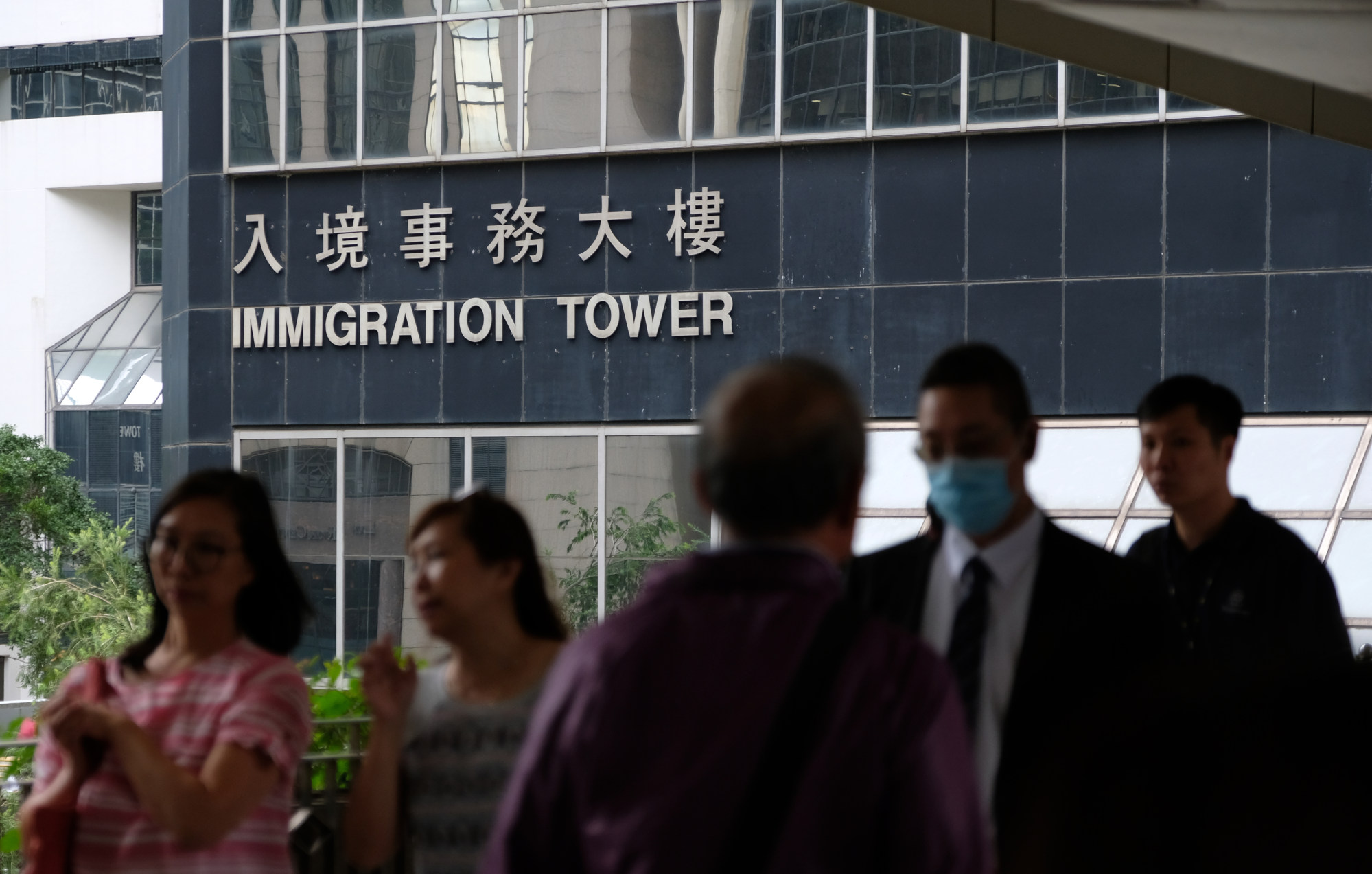
Historian sacked from university in Hong Kong after immigration officials decide not to renew her visa
- Former CUHK historian Rowena He Xiaoqing says officials earlier sent long list to Canadian national asking her about possible foreign government ties
- Government declines to comment on individual cases but stresses visa renewal applicants should avoid being flagged for security or criminal concerns
A history professor has been sacked by a university in Hong Kong after immigration authorities denied her a visa, with the scholar earlier questioned over whether she had ties to foreign governments.
A government spokesman on Saturday declined to comment on individual cases and said the Immigration Department handled each visa request in accordance with the relevant policies. He stressed that successful applicants should avoid being flagged for security or criminal concerns.
Rowena He Xiaoqing, a former associate professor at Chinese University’s history department, confirmed to the Post on Sunday that the institution had fired her on Friday after the department rejected her visa extension application two days before.
“The attack on me is not just an attack on myself, but an attack on intellectual freedom and an attack on honest scholarship,” she said. “It’s almost like you try to do your research, you try to do a good job as an educator, but you are being punished.”
US human rights professor denied Hong Kong visa for university teaching position
The Canadian national began teaching at the university in 2019 after working at US institutions including Harvard University, Wellesley College and Saint Michael’s College.
According to Chinese University’s website, He’s research work had included the 1989 Tiananmen crackdown and she had also published a book on the topic in 2014.
He said she had first become concerned in July of last year after waiting a month to hear from the department about her application, despite her initial bid in 2019 and previous renewal request in 2021 going smoothly.
The academic contacted the department at the end of that month and had received a list of questions concerning the funding sources for past projects at universities in the United States and whether she had ties to foreign governments or non-profits, she said.
According to an Immigration Department document seen by the Post, officials asked whether He had “established, joined or maintained any kind of relationships or connections” with any political organisations or non-profits.
“I wasn’t quite sure what exactly that meant – connections or relationships, but I answered them seriously and submitted a whole big package I prepared,” He said. “I just printed out public information about the universities I have worked for.”

Chinese University followed up on her application as the historian went to the US to take up a competitive fellowship at the National Humanities Centre, an independent non-profit research institute, but there were no further updates at the time.
The Immigration Department sent a rejection email to He last Wednesday, prompting the university to terminate her position two days later.
In a letter seen by the Post, the university’s director of human resources said the scholar’s position had been “terminated with immediate effect”, as visa clearance was a requisite of her employment.
“I was shocked, I thought at least I would have someone from [university] administration talk to me, instead of just sending me this termination letter right away,” He said.
However, a university spokesman defended the visa requirement imposed on non-permanent staff and said the institution had no control over the approval process.
“Visa decisions are a matter for the Immigration Department and the university is unable to influence visa outcomes, and nor is it aware of the circumstances of individual cases,” the spokesman said.
Tightened rules for Hong Kong talent visa schemes after Chinese biophysicist saga
He on Sunday also claimed she was briefly held at the city’s airport after passing through customs in August, without any explanation from local authorities. The historian was asked no questions at the time, she added.
The scholar said she currently held the position of senior research fellow at the University of Texas and had only received short-term working opportunities from other institutions so far, but hoped something more secure would turn up so she could continue her work.
He also expressed concern that her case could have a chilling effect on the academic environment in Hong Kong.
“This is almost like you’re setting an example. Does that mean every university will follow suit?” she said.
“My idea was that I had to survive, I had to be low profile in order to continue to do my work with my students in our space, but of course, it no longer matters as I cannot go back to that space.”

Lau Siu-kai, a consultant at Beijing’s semi-official think tank, the Chinese Association of Hong Kong and Macau Studies, said he believed the incident might “not necessarily be related” to He’s research on the 1989 Tiananmen crackdown and that such a visa denial was rare.
“Foreign scholars who publish research articles or comments will generally not be denied a visa if they only affect the academic circle, even when the topics involve sensitive political events,” he added.
Lau, an emeritus sociology professor at Chinese University, said he did not personally know the Canadian academic involved in the incident.
“Maybe the central and Hong Kong authorities have paid attention to her political actions and remarks. They could be worried that she might do things in Hong Kong that are detrimental to national security and Hong Kong’s stability,” Lau said.
John Burns, an honorary professor at the department of politics and public administration at the University of Hong Kong, said the denial of He’s visa “indicates a narrowing of the civic space in Hong Kong”.
“I don’t know how sudden the visa denial was, but given the central and Hong Kong governments’ determination to erase the memory of the Tiananmen [crackdown], perhaps not a surprise,” he said.
“This is of course very unfortunate. We must be able to research and understand our own history from a variety of perspectives. This is how we can approach truth.”
Additional reporting by Ezra Cheung

